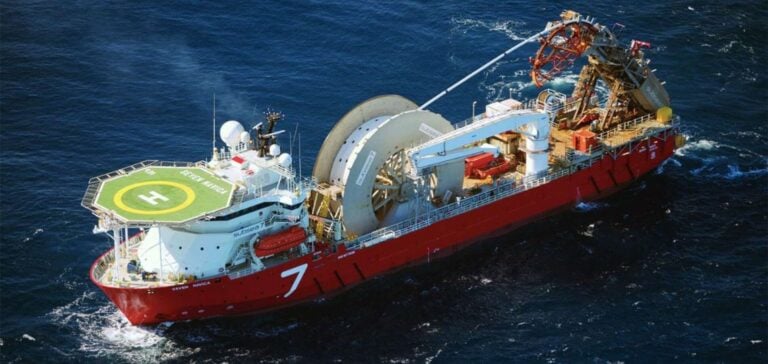Subsea 7 signs several long-term daily rate contracts with Petrobras. The transaction concerns Seven Waves, Seven Rio and Seven Sun pipelay support vessels (PLSVs), Seven Rio and Seven Sun.
Subsea 7 prepares several vessels
While the entire order will be delivered by the fourth quarter of 2022, each contract comprises a firm three-year period (plus one optional year). What’s more, the contract for each vessel begins at a different time: first quarter for Seven Waves, second for Seven Rio and third for Seven Sun. The ships will first have to undergo some modifications in the shipyard.
The remaining period of Seven Waves ‘ and Seven Rio’s current contracts with Petrobras will be transferred to Seven Sea. According to Brazilian vice-president Daniel Hiller
“These new contracts reflect our track record in delivering successful PLSV activities in Brazil”.






















